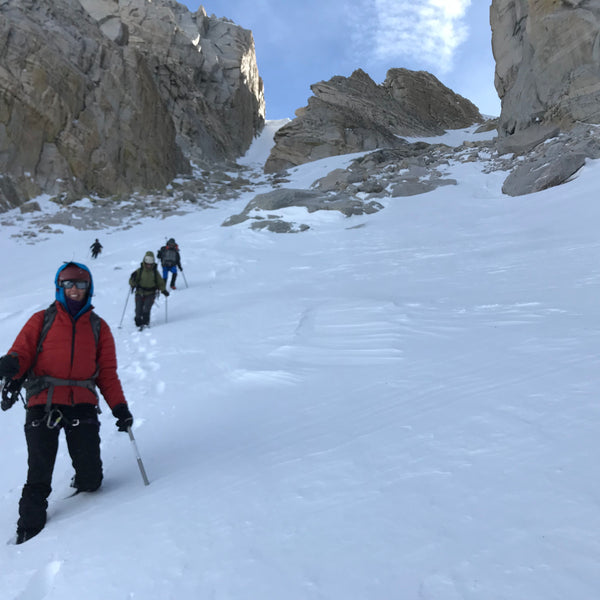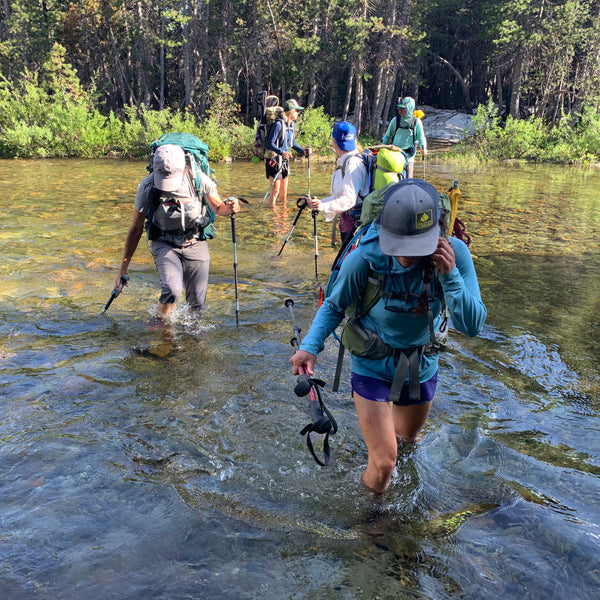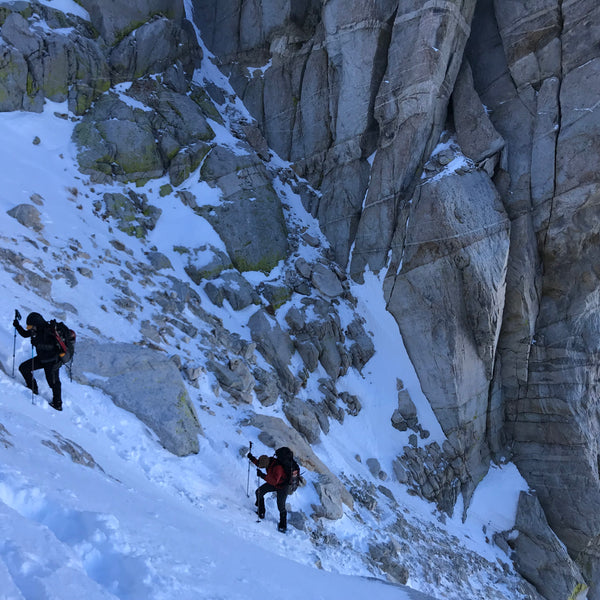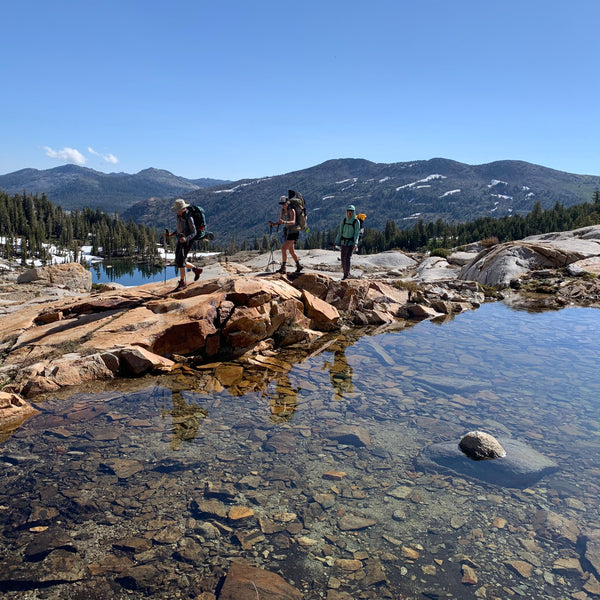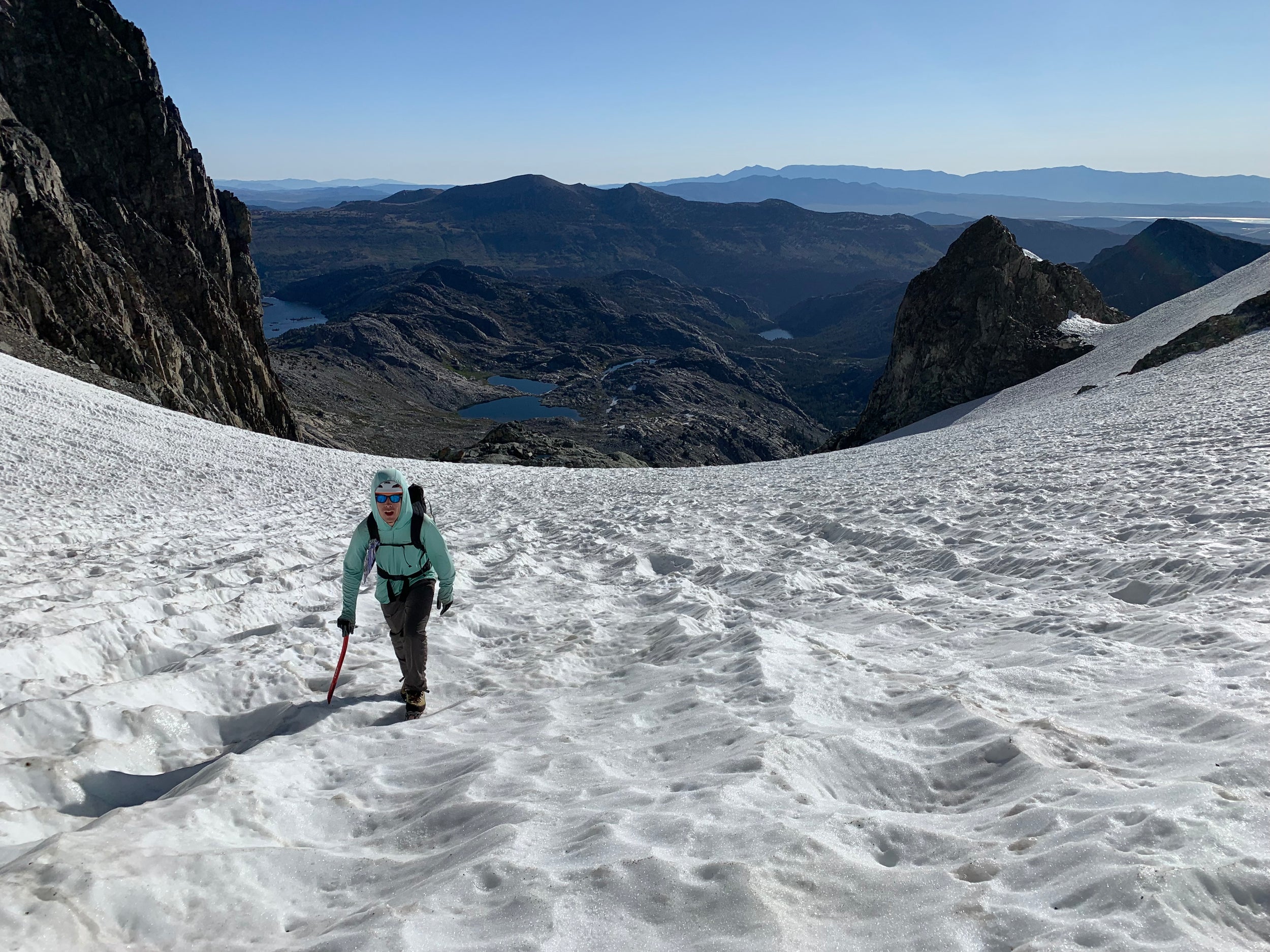
PCT Pacific Crest Trail Thru Hike Prep Course
We'll cover all of the topics you need to feel comfortable completing the Pacific Crest Trail, from Mexico to Canada, in any conditions. We cover planning, altitude illness, trail conditions, prep, winter camping and more!
Here's the schedule for your course:
- Pre-Course Webinar We'll go over some of the basics and planning for the PCT and dial in the logistics and plan for the field portion of the prep course
- Day 1 Briefing for the field days, gear check and final packing, camp setup and field lessons.
- Day 2 Mountaineering skills lessons, practice and coaching,
- See the Itinerary Tab for details on all of the topics covered!
We'll cover the following topics throughout the course, between the webinar and 2 field days:
- Microspikes vs. Crampons - will microspikes be sufficient this year?
- Trail runners vs. crampon compatible boots. What is the boot of choice given the conditions?
- Strategies and skills for managing steep, icy slopes.
- Self-arrest using tools you're carrying, covering both ice axe techniques and ski poles and when it is appropriate to use each.
- River crossings - water could be higher than ever this year!
- Navigation/Route Planning (some trails will be completely covered by snow)
- Route timing - to avoid avalanche danger and post-holing in soft snow.
- Altitude Illness - how to prevent and how to recognize (HACE/HAPE)
- Snow camp craft - camping in the snow with lightweight gear
- Emergency Communication in remote areas - devices to consider and strategies for communicating with your emergency contacts (and support team)
Here are the skills and fitness you'll need for your course:
- This is an introductory program - No mountaineering experience is required!
- Basic Fitness - Able to spend an active day outside, moving uphill at 1,000’ per hour for durations of roughly 1 hour between breaks. Participants should be able to hike 3-5 miles and climb 1,000-1,500 vertical feet throughout the course of the day.
- Mountaineering Gear - Come prepared with your own gear or rent from us
Here's what's included with your course:
- Experienced AMGA Trained Guide
- Ropes and Gear for training
- Group Safety Gear - your guide will be equipped with snow science tools and a first aid kit
- Wag bags for human waste disposal - in with compliance 'Leave No Trace' principles
- Ice Axe, Crampons, Climbing Harness
- Guide Gratuities
Mountaineering Gear
- Ice Axe
- Crampons
- Climbing Harness
Know Before you go

Blackbird Mountain Guides offers both scheduled group programs and private programs.
Private programs are simply above and beyond what Blackbird Mountain Guides currently has scheduled. Scheduled courses are not always less expensive. Before booking a trip with Blackbird Mountain Guides, clients are encouraged to review the differences between these types of programs, and to decide what works best for them.
SCHEDULED PROGRAMS
Scheduled Programs have fixed dates, itineraries, objectives, curriculum, and costs. They typically appeal to solo individuals or small groups or who are looking to share the cost of their program with a larger group. Correspondingly, scheduled programs are less expensive for smaller groups (1-2), and they provide the opportunity to meet others with similar interests. If you have a large group (3+), Scheduled programs will often be more expensive. They can fill up quickly, and scheduling flexibility is obviously limited.
Scheduled programs will have advertised dates. All scheduled programs can be run as private programs with private dates/rates as well.
PRIVATE PROGRAMS
Private programs have scheduling freedom. They typically appeal to those who would like some flexibility in planning their own trip or course. In this regard, Itineraries and objectives can be tailored to suit current conditions as well as client goals. Private programs are normally less expensive for larger groups (3+). If you have a small group (1-2) private programs will be more expensive.
We'll cover all of the topics you need to feel comfortable completing the Pacific Crest Trail, from Mexico to Canada, in any conditions. We cover planning, altitude illness, trail conditions, prep, winter camping and more!
Here's the schedule for your course:
- Pre-Course Webinar We'll go over some of the basics and planning for the PCT and dial in the logistics and plan for the field portion of the prep course
- Day 1 Briefing for the field days, gear check and final packing, camp setup and field lessons.
- Day 2 Mountaineering skills lessons, practice and coaching,
- See the Itinerary Tab for details on all of the topics covered!
We'll cover the following topics throughout the course, between the webinar and 2 field days:
- Microspikes vs. Crampons - will microspikes be sufficient this year?
- Trail runners vs. crampon compatible boots. What is the boot of choice given the conditions?
- Strategies and skills for managing steep, icy slopes.
- Self-arrest using tools you're carrying, covering both ice axe techniques and ski poles and when it is appropriate to use each.
- River crossings - water could be higher than ever this year!
- Navigation/Route Planning (some trails will be completely covered by snow)
- Route timing - to avoid avalanche danger and post-holing in soft snow.
- Altitude Illness - how to prevent and how to recognize (HACE/HAPE)
- Snow camp craft - camping in the snow with lightweight gear
- Emergency Communication in remote areas - devices to consider and strategies for communicating with your emergency contacts (and support team)
Here are the skills and fitness you'll need for your course:
- This is an introductory program - No mountaineering experience is required!
- Basic Fitness - Able to spend an active day outside, moving uphill at 1,000’ per hour for durations of roughly 1 hour between breaks. Participants should be able to hike 3-5 miles and climb 1,000-1,500 vertical feet throughout the course of the day.
- Mountaineering Gear - Come prepared with your own gear or rent from us
Here's what's included with your course:
- Experienced AMGA Trained Guide
- Ropes and Gear for training
- Group Safety Gear - your guide will be equipped with snow science tools and a first aid kit
- Wag bags for human waste disposal - in with compliance 'Leave No Trace' principles
- Ice Axe, Crampons, Climbing Harness
- Guide Gratuities
Mountaineering Gear
- Ice Axe
- Crampons
- Climbing Harness
the blackbird difference
We’re here to help. Our FAQs or Gear Lists might have the information you’re seeking. But If you’re not finding the information you need, we’d be happy to help!
